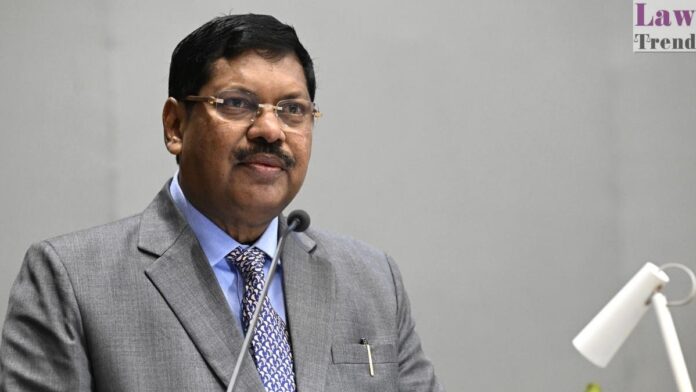Chief Justice of India (CJI) Dr. D.Y. Chandrachud’s successor and current head of the Indian judiciary, Justice B.R. Gavai, has voiced serious concerns about the ethical implications of retired judges accepting government posts or entering electoral politics shortly after leaving the bench. Speaking during a roundtable discussion at the Supreme Court of the United Kingdom, CJI Gavai warned that such practices risk eroding public trust in the judiciary.
“Raises Ethical Concerns, Invites Scrutiny”: CJI Gavai
In a candid address to international jurists, CJI Gavai stated:
“If a judge takes up another appointment with the government immediately after retirement, or resigns from the bench to contest elections, it raises significant ethical concerns and invites public scrutiny. A judge contesting an election for a political office can lead to doubts regarding the independence and impartiality of the judiciary, as it may be seen as a conflict of interest or as an attempt to gain favour with the government.”
He cautioned that the timing and nature of such engagements could lead to the perception that judicial decisions were influenced by expectations of post-retirement benefits or political aspirations.
Public Trust and Judicial Independence at Risk
Emphasising the potential damage to institutional credibility, CJI Gavai remarked:
“The timing and nature of such post-retirement engagements could undermine the public’s trust in the judiciary’s integrity, as it could create a perception that judicial decisions were influenced by the prospect of future government appointments or political involvement.”
The Chief Justice also revealed that he and several of his colleagues had publicly pledged not to accept any post-retirement roles or positions from the government, calling it “an effort to preserve the credibility and independence of the judiciary.”
A Long-Standing Debate
CJI Gavai’s statement comes amid an ongoing debate in India over the appropriateness of judicial appointments to quasi-judicial or administrative roles after retirement. In recent years, several former judges of the Supreme Court and High Courts have been appointed to commissions, tribunals, and even gubernatorial or ministerial positions shortly after stepping down, reigniting concerns about judicial neutrality.
Legal scholars and civil society groups have long argued for a cooling-off period post-retirement and the need for a more transparent framework to govern such appointments.
CJI Gavai’s remarks are being seen as a significant intervention in this debate, reflecting the judiciary’s increasing introspection over its perceived independence and ethical standing in the public eye.




